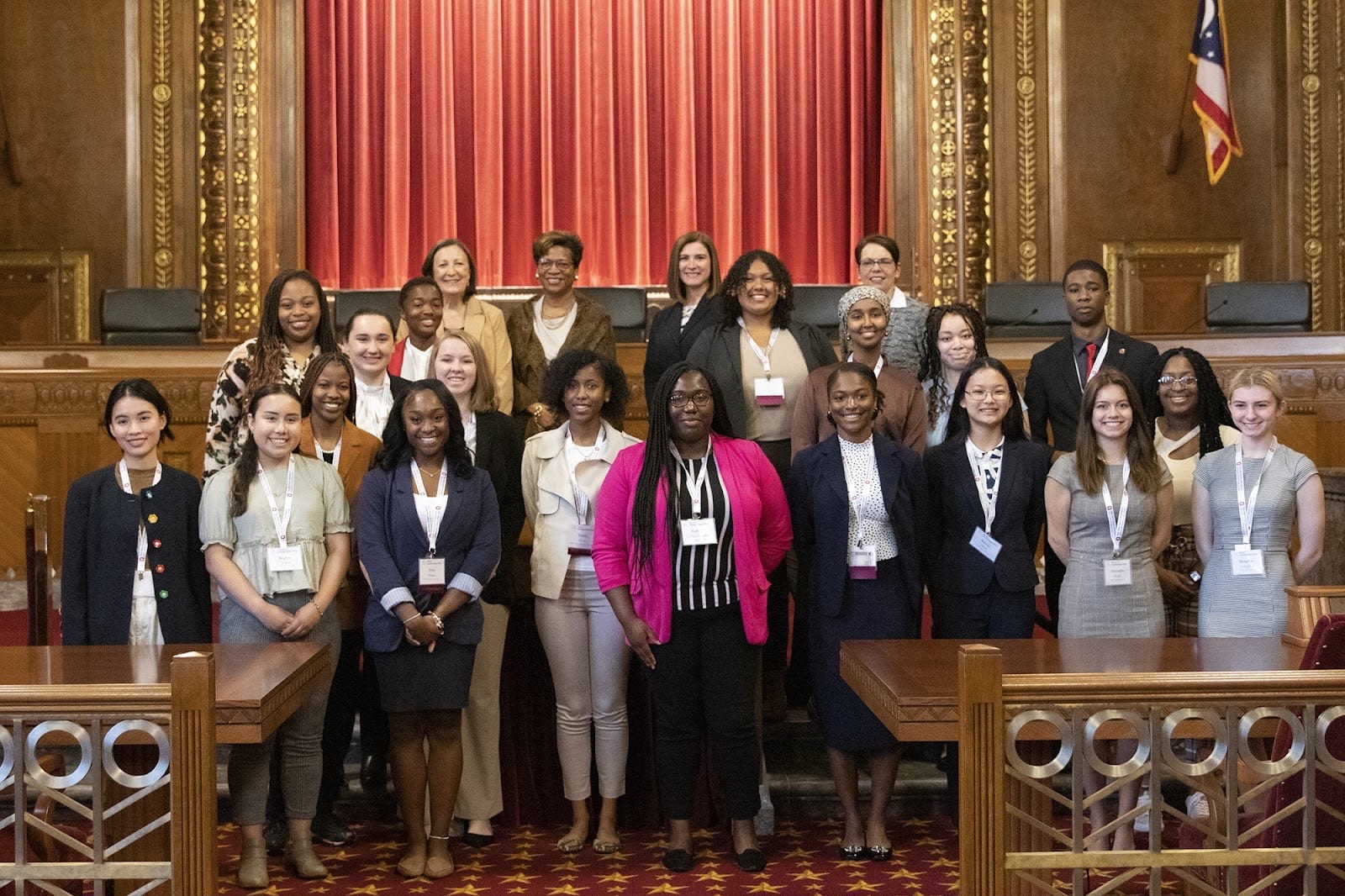
Pictured above are members of Ohio State’s John Glenn College of Public Affairs. Credit: John Glenn College of Public Affairs
More than a century after women earned the right to vote, political representation for them remains unbalanced.
According to RepresentWomen’s Gender Parity Index, the 168 million women in the United States only make up about 30 percent of all elected positions.
Some at the John Glenn College of Public Affairs are working to close that gap — given that Ohio’s index is one of the lowest in the country — through their POWER Programs, a group of professional trainings tailored for women who want to run for public office and advocate for causes that matter to them through a variety of different avenues related to public service.
POWER, which stands for Programs for Ohio Women Empowered to Represent, includes four different types of programming. The senior adviser for these programs, Erin Scott, said they serve many functions in increasing representation and are open to anyone who wants to participate, whether they identify as a woman or an ally.
“The POWER programs are more than just recruiting women to run for office and become an elected official,” Scott said. “It’s actually also about advocacy and encouraging more women to have a stake in the political process.”
The programs include Ready to Run, Network Reception, NEW Leadership and IGNITE OSU, according to the Glenn College’s website. The college’s director of professional development, Greg Moody, emphasized the importance of the New Leadership and Ready to Run programs.
New Leadership is a five-day residential program that will next take place in May 2024. It introduces “college students to successful women leaders and strategies to run and win political campaigns,” according to the program’s website.
Ready to Run is a one-day conference on Saturday “that encourages women to run for elected office, seek higher office, work on a campaign or get involved in public life in other ways,” according to the program’s website.
Both programs offer participants intensive training that equips them with necessary skills when running for office. Other programs take place throughout the year and touch on different aspects of winning a campaign such as crafting a social media presence or budgeting and fundraising.
Glenn College is constantly building relationships with elected officials, which helps students network and make connections that will benefit their future endeavors, Scott said.
More specifically, the programs leverage connections from the university to connect students with women in public service. Moody said the main component is mentorship from female figures in public service positions, such as Ohio Supreme Court justices, legislative aides or those in the nonprofit sector.
“Anybody can learn from a male government official and anyone can learn from a female government official, but the real point is to get folks who encounter certain kinds of particular barriers to hear from successful women candidates and how they overcome those barriers,” Moody said.
Brooke Shields, a 2023 graduate in political science, said she was especially inspired by Judge Melody Stewart, who serves as the only Black judge in the Ohio Supreme Court who achieved her position despite following an unconventional pathway.
“She didn’t think she would be a judge. Her pathway was kind of crazy, and it wasn’t straight. I think that really motivated me,” Shields said. “Hearing her say [she] didn’t even take a pre-law course per se in undergrad, it kind of calmed my nerves a little bit, and I was like, ‘Okay, I can do this.’”
Moody and Scott said they have observed students greatly benefit from the programs and continue in public service.
“We’ve seen a direct connection between breaking down barriers for women’s participation in politics and then seeing incredible students go on to do things from the federal level to races here in Ohio, even nonprofit leadership,” Scott said.
While watching these students continue to pursue a career in politics and public service, Scott said it is important to have more women in positions of power.
“America is becoming increasingly diverse, and so we need the people who are making decisions about our budgets and our policies, taking care of our community members to reflect the actual communities that we serve,” Scott said.


